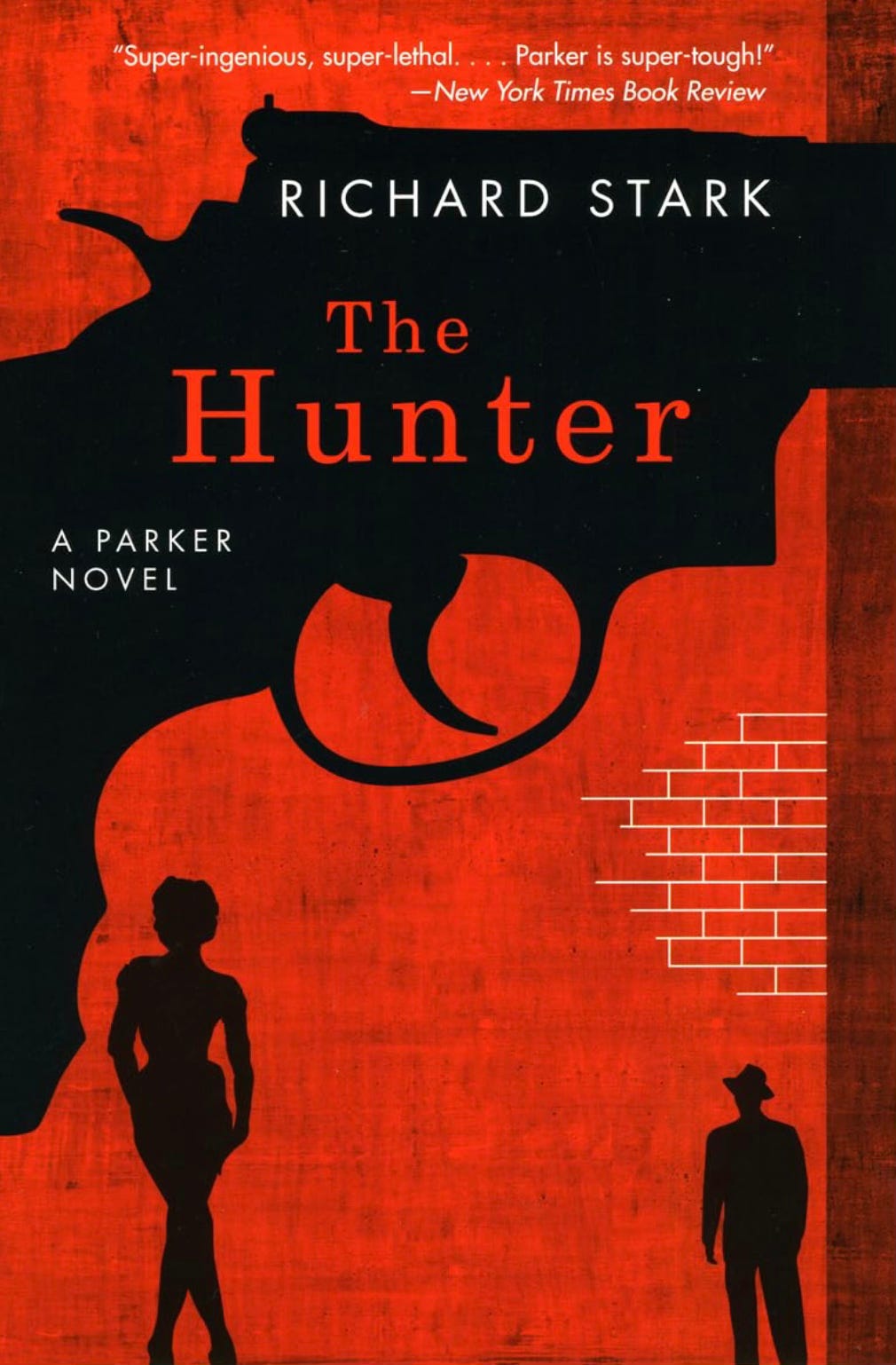The Hunter by Richard Stark is the first novel in the Parker series. Richard Stark is the pen name of fiction legend Donald E. Westlake who was perhaps best known for his comedy capers. Typically, lighter fare was published under his real name, while he reserved the Stark nom de plume for his more hard-boiled Parker novels.
The Hunter is a very tightly written crime novel that spawned 23 more. Parker himself is something of an independent heavy. He takes one or two jobs a year and lives on the proceeds, similar to how John D. Macdonald’s Travis McGee character “takes his retirement in increments” and only comes out to do a salvage job when he is low on cash. A lifestyle that has become a sort of trope in crime novels and thrillers.
Parker is an interesting character because he’s not really a good guy. He’s clearly somewhere on the spectrum between sociopath and psychopath. But like all good hard-boiled characters, he still has a code. Pay me what you owe me and not one red cent more.
“The office women looked at him and shivered. They knew he was a bastard, they knew his big hands were born to slap with, they knew his face would never break into a smile when he looked at a woman. They knew what he was, they thanked God for their husbands, and still they shivered. Because they knew how he would fall on a woman in the night. Like a tree.
- The Hunter, Richard Stark
“I’m going to drink his blood,” he said. “I’m going to chew up his heart and spit it into the gutter for the dogs to raise a leg at. I’m going to peel the skin off him and rip out his veins and hang him with them.”
- The Hunter, Richard Stark
The novel introduces us to a penniless and shabbily dressed Parker through a series of small cons that allow him to buy a new suit, a hotel room, and some odds and ends. He is a man simply living off the land, only the land in this case is the concrete jungle of New York City. And if New York City is a jungle, then Parker is its apex predator.
We soon find out that Parker has arrived in New York City to take revenge on his wife Lynn and his one-time partner Mal Resnick who double-crossed him and left him for dead. Little known to them, Parker didn’t die, but he was arrested for vagrancy and thrown into prison.
The rest of the novel unfolds across four perfectly plotted and paced parts as Parker hunts down Mal. Backstory is filled in via timely flash back chapters. And Mal for his part spends most of the novel evading Parker and whining for help from The Syndicate (a shadowy crime organization) which he now works for.
I’ll call it there on the plot, so as to avoid spoilers. Overall, I really enjoyed this novel. It’s so expertly written and plotted and competently crafted that it’s easy to see why Westlake is considered one of the best.
Overall, the novel is both darkly funny and deeply tragic in equal parts. Parker is somehow likable despite his apparent lack of moral compass. Or maybe it’s just the primal simplicity of his drives that are easy to relate to.
He hated her. He hated her and he loved her, and he’d never felt either emotion for anyone before. Never love, never hate, never for anyone. Mal, now. Mal he would kill, but that wasn’t hate. There was a score to settle; there were accounts to balance. That was rage, that was fury and pride, but it wasn’t hate.
- The Hunter, Richard Stark
Even if you’ve not read any of the Parker novels, you’ve most likely seen an adaptation (Parker novels have been officially adapted for the screen eight times). But if not, you can see some of the tropes the series pioneered pop up in more recent action movies like John Wick or Nobody. I suspect both of which have heavy Parker influences that the writers and directors might not even be conscious of. For example, the Syndicate reminded me of the assassins guild in the wick movies. The most easily placeable direct adaptation is probably Mel Gibson’s Payback, while Jason Statham’s Parker is adapted from the 19th novel in the series.
To expand on an aside I made earlier, that of the aristocratic lifestyle of fictional heavies—a good hardboiled character should refuse to work a regular job or worry about a steady paycheck. Whether mercenary, fixer, or private investigator, a good “knight” character takes after his more noble forbears and loathes normie work. Even Reacher does a similar thing with his drifter/hobo aesthetic (basically the libtard version of Travis McGee (no really, Lee Child has said he modeled Reacher after the much cooler McGee)).
Anyways, my point here is that archetypes and stories represent truths about human nature and types. In this case, that truth is that "work ethic” and “jobs” are anathema to the warrior/knight archetype (Bernard Cornwell nods along solemnly somewhere). A good errant knight character should resemble a big cat in his manner. He should do one good heist, crack one good case, or save one hot damsel before returning to his card games and houseboats and fraternizing. It’s something of a logical cause and effect that many a good hard-boiled character taps into.




Donald Westlake was Dr. Jeykl; Richard Stark was his Mr. Hyde.
Never heard of the guy but can't wait to check it out.